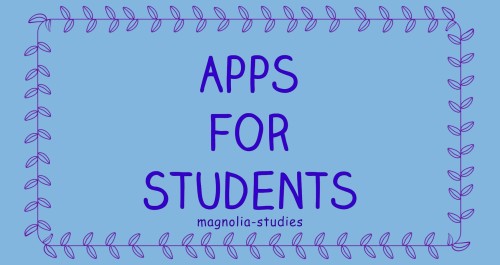Useful Writing Resources
Useful Writing Resources
This is an extensive list of resources for every problem you could come across while writing/planning/editing your novel. Use it well;)
{ *** } Indicate a Highly Reccommended Resource

Planning/outlining Your Work
How To Outline ***
Zigzag Method : Creating Plots
How to Plot a Romance Novel
Seven Great Sources of Conflict for Romances
Let’s talk about brainstorming
Writing Something With Meaning ***
Past Or Present Tense? : How To Decide
Writing Your Work
How To Write A Fabulous Chapter #1 ***
How to Build a Romance Thread in Your Story
The Big Book Of Writing Sex ***
6 Ways to Get Your Readers Shipping Like Crazy
Romance Writing Tips ***
20 Tips for Writing Lovable Romance Novel Heroes
7 Ways To Speed Up Your Writing ***
80+ Barriers to Love: A List of Ideas to Keep Romantic Tension High
9 Romance Writing Mistakes to Avoid
Removing the Creeps From Romance
19 Ways to Write Better Dialogue ***
50 Things Your Characters Can Do WHILE They Talk ***
How To Write Action And Fight Scenes
10 Steps To Write Arguments
9 Ways To Write Body Language
Writing Good Kissing Scenes
Writing Murders
Create And Control Tone ***
Tips for Writing Ghost Stories
Incorporating Flashbacks
12 Tips To Avoid Overwriting ***
Characters
Behind the Name
Top Baby Names
Looking for a name that means a certain thing? ***
7 Rules of Picking Names
Most Common Surnames ***
Minor Character Development
Writing Antagonists, Antiheroes and Villains
Characters With Enhanced Senses
5 Tips to Help You Introduce Characters
How Do You Describe a Character?
How To Write Child Characters
36 Core Values For Building Character
Questions To Answer When Creating Characters ***
4 Ways to Make Readers Instantly Loathe Your Character Descriptions
5 Ways to Keep Characters Consistent
Character Archetypes
25 Ways To Fuck With Your Characters
Building Platonic Relationships Between Female Characters
9 Simple and Powerful Ways to Write Body Language
33 Ways To Write Stronger Characters
Conveying Character Emotion
How to Make Readers Love an Unlikable Character…
How to Create Powerful Character Combos
How To Describe A Character’s Voice ***
Describing Clothing And Appearance ***
Career Masterpost ***
Creating Your Character’s Personality ***
Character Flaws ***
Editing
DON’T EDIT>>> REWRITE THE WHOLE THING FIRST
Ultimate Guide To Editing Each Aspect Of Your Work ***
Why You Would Read Your Novel Out Loud ***
Grammar and Punctuation ***
How To Write A Captivating First Sentence
10 Things Your Opening Chapter Should Do: A Check-List for Self-Editing ***
Saving Your Story: Finding Where It Went Wrong
How To Condense Without Losing Anything
The Stages Of Editing
Dialogue/Description Balance
3 Proofreading Tips
The Short Story Form
Chapter & Novel Lengths
Anatomy Of A Novel : Chapters and Parts ***
How To Write Chapter After Chapter Until You Have A Book ***
Where Chapter #2 Should Start
Step By Step Guide To Editing Your Draft
Writing Tool: CTRL-F (How And Why You Should Use It) ***
How To Kill A Character
25 Steps To Edit The Unmerciful Suck Out Of Your Story
5 Ways To Make Your Novel Helplessly Addictive ***
Setting
{Setting} How To Describe Setting In Your Stories ***
20 Questions To Enhance Setting
How To Bring Your Setting To Life
Miscellaneous Resources You Can Use In Between
How to Write from a Guy’s POV
The Emotional Wounds Thesaurus
Text To Speech Reader
Compare Character Heights
A Visual Dictionary of Tops
Writers Helping Writers
7 Tricks To Imrove Your Writing Overnight
Work Out/ Word Count : Exercise Between Writing ***
Most Important Writing Tips ***
Let’s talk about diversity in novels
Letting Go Of Your Story
Keeping A Healthy Writing Schedule And Avoiding Procrastination ***
How To Create A Good Book Cover
Write or Die
Tip of my Tongue
Character Traits Form
Online Thesaurus
Writing Sketchy/Medical/Law
Coma: Types, Causes, etc
Tips for writing blood loss
Gunshot Wound Care
Examples of Hospital Forms
Common Legal Questions
The Writer’s Forensics Blog
Brain Injury Legal Guide
Types of Surgical Operations
Types of Mental Health Problems
A Day in the Life of a Mental Hospital Patient
Global Black Market Information ***
Crime Scene Science
Examining Mob Mentality
How Street Gangs Work
Writers’ Block Help/ Productivity
Story Plot Generator
@aveeragemusings ‘ Cure To Writers’ Block ***
50 Romance Plot Ideas
Reading Like A Writer ***
Defeat Writers’ Block
Writing In A Bad Mood ***
Writers Block
When You’ve Lost Motivation To Write A Novel ***
What To Do When The Words Won’t Flow ***
9 Ways To Be A More Productive Writer
“I Cannot Write A Good Sentence Today” (How To Get Over It) ***
Real Writing Advice ***
Info You Need To Know & Words You Didn’t Think Of
A Writer’s Thesaurus ***
Words To Describe… ***
Words & Phrases To Use In Your Sex Scenes ***
Colors (An Extensive List Of Colors)
List Of Kinks & Fetishes ***
List Of Elemental Abilities
inkarnate.com : World Creator And Map Maker For Your Imaginary Setting
Body Language Phrases
List Of Legendary Creatures
How To Write Magic
Hairstyle References
Hemingway : Writing Checker
Body Types: Words To Describe Bodies and How They Move Around
Poisonous Herbs and Plants ***
The Psychology of Color
The Meaning behind Rose color
Types of Swords
Color Symbolism
How a handgun works
How to Write a Eulogy
Types of Crying
Avoiding LGBTQ Stereotypes ***
Superstitions and More
The 12 Common Archetypes
Language of Flowers
12 Realistic Woman Body Shapes
Using Feedback And Reviews
Turning Negative Reviews Into Positive Ones ***
Proofreading Marks : Easy Symbols To Make Reviewing/Feedback Easier ***
Authonomy Teen Ink Figment Fiction Press ReviewFuse
These Are Trusted Critique Sites ;)
More Posts from Writingwickedwitch and Others
By the way, you can improve your executive function. You can literally build it like a muscle.
Yes, even if you're neurodivergent. I don't have ADHD, but it is allegedly a thing with ADHD as well. And I am autistic, and after a bunch of nerve damage (severe enough that I was basically housebound for 6 months), I had to completely rebuild my ability to get my brain to Do Things from what felt like nearly scratch.
This is specifically from ADDitude magazine, so written specifically for ADHD (and while focused in large part on kids, also definitely includes adults and adult activities):

Here's a link on this for autism (though as an editor wow did that title need an editor lol):

Resources on this aren't great because they're mainly aimed at neurotypical therapists or parents of neurdivergent children. There's worksheets you can do that help a lot too or thought work you can do to sort of build the neuro-infrastructure for tasks.
But a lot of the stuff is just like. fun. Pulling from both the first article and my own experience:
Play games or video games where you have to make a lot of decisions. Literally go make a ton of picrews or do online dress-up dolls if you like. It helped me.
Art, especially forms of art that require patience, planning ahead, or in contrast improvisation
Listening to longform storytelling without visuals, e.g. just listening regularly to audiobooks or narrative podcasts, etc.
Meditation
Martial arts
Sports in general
Board games like chess or Catan (I actually found a big list of what board games are good for building what executive functioning skills here)
Woodworking
Cooking
If you're bad at time management play games or video games with a bunch of timers
Things can be easier. You might always have a disability around this (I certainly always will), but it can be easier. You do not have to be this stuck forever.
Please buy this comic, be it trades, issues (physical or digital) this is a super feminist LGBT+ comic for all ages.
Raven the Pirate Princess is Sinking
I despise doing posts where I ask for help, but here we are.
About two years ago I started a new creator owned project. It began as a spin-off of Princeless, but the reality is this - Raven The Pirate Princess is its own thing altogether. I knew this from the first issue and if you’ve been reading, so have you.
Sure, the first few issues of Raven: Pirate Princess had that heroic lady feminist banter for which Princeless has become known both among its fans and detractors. I mean, Raven had this scene:

and issue 1 had this scene:

But perhaps much more importantly, the first issue of Raven had this:

but that wasn’t where that ended. This is a book about a community of diverse queer women actively claiming their place in the world and taking what’s theirs. It’s about Raven, who is desperately in love with her childhood best friend Ximena

It’s about Ximena, a girl who was held captive for years by a pirate king who pretended to be her liberator. Who fell in love with the pirate’s daughter, only to be left behind by that father when she outlived her value.

About Sunshine, the thief that chose the wrong target and ended up falling in love with a woman already hopelessly in love with somebody else.

It’s about Katie, the bisexual second in command who’s motivated by honor…and occasionally beating the snot out of a dude or two

Oh and in case I forgot to mention, Katie is also incredibly muscular:

And Jayla, the asexual science genius who’s tired of being treated like a little sister

and Cid, the deaf engineer who quietly keeps the ship running

and of course, these two:

The socially awkward poet and the angry sword fighter who couldn’t stand her who have somehow become these two:

But here’s the thing: this comic is failing. It has a very dedicated and exuberant but at this point SMALL fanbase. Today I had a hard conversation with Action Lab about the reality of the numbers on this book versus what it costs to produce this book and, suffice it to say, Action Lab isn’t ready to cancel the book, but they aren’t ready to greenlight year 3 either. After Year 2 #13, Raven is set to go on the shelf until numbers can support continuing it.
This is where I need your help
If you care about this book full of queer pirate ladies and you want it to continue, we need to find a way to spread the word about it. We don’t need to sell single issues (it would be nice) but ultimately we need the trades sales that back up the continuation of this big YA Pirate/Revenge/Adventure/Romance thing.
Digital copies can be bought instantly right on Comixology: https://www.comixology.com/Princeless-Raven-The-Pirate-Princess/comics-series/46971
You can buy the physical volumes on amazon here: https://www.amazon.com/gp/bookseries/B01BF7U91Q
In fact, if you’ve already purchased volumes 1-4, volume 5 is available for preorder there right now!
Maybe you’ve bought all the issues already. Thank you! If you still want to support Raven, you can review the books on Amazon or other retailers, you can share, reblog or retweet this post. You can tell a friend about the book!
If you have a comics review site or, say, a blog where you talk about LGBT media, contact me for review links or interviews. Please, help us save our ship.

Saturday, July 22nd, 2017
Here are some of the very best apps for students; either in highschool or in college. I have used many of the following apps, but not all of them. Some, I have just asked friends about and they suggested those ones.
Please enjoy the apps below, tell me how you like them, and feel free to add onto this list :)
Focus: SelfControl, Forest, MindNode, FocusBooster, FocusWriter, Think, StayFocused, Freedom, Cold Turkey, Anti-Social, Time Out, SmartBreak, Balanced
Productivity: Evernote, Any.do, MyScript Nebo, Outlook, Trello, Droptask, Basecamp, Pocket, Gyst, Doodle, Pen and Paper, Wunderlist, Toggl, Asana, Wolfram Alpha
Sounds: Tide, WhiteNoise, Chroma Doze, Coffitivity, Noisli, Brain.fm, NatureSpace, Noizio, Rainy Mood, SimplyNoise, Spotify, Slacker Radio
Language Learning: Duolingo, Memrise, Busuu, Babbel, Livemocha, Living Language, Tandem, MindSnacks
Games: Lumosity, Sudoku, TanZen, GeoMaster Plus HD, Speed Anatomy, Star Walk, LeafSnap, Splice: Tree of Life, Vismory, Pigments, Viridi, Sunshine, Nota
Revision: Gojimo, Revision App, iMindMap, Exam Countdown, Penultimate, Clippet
Test Prep: Khan Academy, Magoosh ACT Flashcards, The Grading Game, Math Brain Booster, ACCUPLACER Study App, CK-12, NRICH, StudySync, Quizlet, StudyAce, That Quiz, Brilliant, Synap
Planner: Timeful, Remember the Milk, Listastic, Finish, 2Do, iStudiez Pro, MyHomework Student Planner, My Study Life, ClassManager, MyLifeOrganized, Daily Agenda, Schedule Planner, Todoist
Writing: EasyBib, ProWritingAid, Bubbl.us, WiseMapping, yWriter5, Storybook, Q10, Write 2 Lite, Writer, Diaro, Note Everything, OmmWriter, Draft
Health: MyFitnessPal, Lose It, Endomondo, FitNet, Sworkit, Daily Yoga, Yonder, Fooducate, SideChef, Rise, LifeSum, Meditation Studio, Happify, 7 Cups, Clue, Start, Power Nap App, Fit Radio, Calm
Courses: Corsera, PhotoMath, Udemy, HowCast, SimpleMind+, Open Culture, Canvas, Schoology, Alison, CourseBuffet, Degreed, Instructables, InstaNerd, Big Think, Yousician, Pianu
Books & Reading: CampusBooks, Scribd, Pocket, Wattpad, GoodReads, Readmill, Audible, Prizmo, Blio, Kindle, Overdrive, BlueFire Reader, Nook, Kobo, Aldiko, Cool Reader
Note Taking: SuperNotes, StudyBlue, Bento, QuickOffice, Google Keep, Zoho Notebook, Simplenote, Bear, OneNote, Box Notes, Dynalist.io, Squid, Notability
Inspiration: TED, Lift, Believe It: You Will Achieve, BrainCourage, Get Inspired, iFundamentals, Reinventing Yourself, iWish, Pozify, Positive Thinking - The Key to Happiness, The Gratitude Journal
Other: WiFi Finder, Mint, Zwoor, Brain Pump, Curiosity, Ready4 SAT, GradeProof, edX, Mendeley, Due, CamScanner, IFTTT, Square Cash
The BBC is releasing over 16,000 sound effects for free download

Helpful things for action writers to remember
Sticking a landing will royally fuck up your joints and possibly shatter your ankles, depending on how high you’re jumping/falling from. There’s a very good reason free-runners dive and roll.
Hand-to-hand fights usually only last a matter of seconds, sometimes a few minutes. It’s exhausting work and unless you have a lot of training and history with hand-to-hand combat, you’re going to tire out really fast.
Arrows are very effective and you can’t just yank them out without doing a lot of damage. Most of the time the head of the arrow will break off inside the body if you try pulling it out, and arrows are built to pierce deep. An arrow wound demands medical attention.
Throwing your opponent across the room is really not all that smart. You’re giving them the chance to get up and run away. Unless you’re trying to put distance between you so you can shoot them or something, don’t throw them.
Everyone has something called a “flinch response” when they fight. This is pretty much the brain’s way of telling you “get the fuck out of here or we’re gonna die.” Experienced fighters have trained to suppress this. Think about how long your character has been fighting. A character in a fist fight for the first time is going to take a few hits before their survival instinct kicks in and they start hitting back. A character in a fist fight for the eighth time that week is going to respond a little differently.
ADRENALINE WORKS AGAINST YOU WHEN YOU FIGHT. THIS IS IMPORTANT. A lot of times people think that adrenaline will kick in and give you some badass fighting skills, but it’s actually the opposite. Adrenaline is what tires you out in a battle and it also affects the fighter’s efficacy - meaning it makes them shaky and inaccurate, and overall they lose about 60% of their fighting skill because their brain is focusing on not dying. Adrenaline keeps you alive, it doesn’t give you the skill to pull off a perfect roundhouse kick to the opponent’s face.
Swords WILL bend or break if you hit something hard enough. They also dull easily and take a lot of maintenance. In reality, someone who fights with a sword would have to have to repair or replace it constantly.
Fights get messy. There’s blood and sweat everywhere, and that will make it hard to hold your weapon or get a good grip on someone.
A serious battle also smells horrible. There’s lots of sweat, but also the smell of urine and feces. After someone dies, their bowels and bladder empty. There might also be some questionable things on the ground which can be very psychologically traumatizing. Remember to think about all of the character’s senses when they’re in a fight. Everything WILL affect them in some way.
If your sword is sharpened down to a fine edge, the rest of the blade can’t go through the cut you make. You’ll just end up putting a tiny, shallow scratch in the surface of whatever you strike, and you could probably break your sword.
ARCHERS ARE STRONG TOO. Have you ever drawn a bow? It takes a lot of strength, especially when you’re shooting a bow with a higher draw weight. Draw weight basically means “the amount of force you have to use to pull this sucker back enough to fire it.” To give you an idea of how that works, here’s a helpful link to tell you about finding bow sizes and draw weights for your characters. (CLICK ME)
If an archer has to use a bow they’re not used to, it will probably throw them off a little until they’ve done a few practice shots with it and figured out its draw weight and stability.
People bleed. If they get punched in the face, they’ll probably get a bloody nose. If they get stabbed or cut somehow, they’ll bleed accordingly. And if they’ve been fighting for a while, they’ve got a LOT of blood rushing around to provide them with oxygen. They’re going to bleed a lot.
Here’s a link to a chart to show you how much blood a person can lose without dying. (CLICK ME)
If you want a more in-depth medical chart, try this one. (CLICK ME)
Hopefully this helps someone out there. If you reblog, feel free to add more tips for writers or correct anything I’ve gotten wrong here.
Does anyone want to talk about Heavanfall is for lovers with me? Especially Antonio's route. I have so many opinions and theories.
self-editing for fiction writers
Showing vs Telling
Do you have any narrative summary, or are you bouncing from scene to scene without pausing for breath?
Characterization & Exposition
What information do your readers need in order to understand your story? At what point in the story do they need to know it?
How are you getting this info across to your readers? Is it all at once through a writer-to-reader lecture?
If exposition comes out through dialogue, is it through dialogue your characters would actually speak even if your readers didn’t have to know the information? In other words, does the dialogue exist only to put the information across?
Point of View
Look at your descriptions. Can you tell how your viewpoint character feels about what you’re describing?
Proportion
Look at descriptions. Are the details you give the ones your viewpoint character would notice?
Reread your first fifty pages, paying attention to what you spend your time on. Are the characters you develop most fully important to the ending? Do you use the locations you develop in detail later in the story? Do any of the characters play a surprising role in the ending? Could readers guess this from the amount of time you spend on them?
Dialogue
Can you get rid of some of your speaker attributions entirely? Try replacing some with beats.
How often have you paragrapher your dialogue?Try paragraphing a little more often.
See How it Sounds
Read your dialogue aloud. At some point, read aloud every word you write.
Be on the lookout for places where you are tempted to change the wording.
How well do your characters understand each other? Do they ever mislead on another? Any outright lies?
Interior Monologue
First, how much interior monologue do you have? If you seem to have a lot, check to see whether some is actually dialogue description in disguise. Are you using interior monologue to show things that should be told?
Do you have thinker attributions you should get rid of (by recasting into 3rd person, by setting the interior monologue off in its own paragraph or in italics, or by simply dropping the attribution)
Do your mechanics match your narrative distance?(Thinker attributions, italics, first person when your narrative is in third?)
Easy Beats
How many beats do you have? How often do you interrupt your dialogue?
What are your beats describing? Familiar every day actions, such as dialling a telephone or buying groceries? How often do you repeat a beat? Are your characters always looking out of windows or lighting cigarettes?
Do your beats help illuminate your characters? Are they individual or general actions anyone might do under just about any circumstances?
Do your beats fit the rhythm of your dialogue? Read it aloud and find out
Breaking up is easy to do
Look for white space. How much is there? Do you have paragraphs that go on as much as a page in length?
Do you have scenes with NO longer paragraphs? Remember what you’re after is the right balance.
Have your characters made little speeches to one another?
If you’re writing a novel, are all your scenes or chapters exactly the same length? -> brief scenes or chapters can give you more control over your story. They can add to your story’s tension. Longer chapters can give it a more leisurely feels. If scene or chapter length remains steady while the tension of the story varies considerably, your are passing up the chance to reinforce the tension.
Once is usually enough
Reread your manuscript, keeping in mind what you are trying to do with each paragraph–what character point you’re trying to establish, what sort of mood you’re trying to create, what background you’re trying to suggest. In how many different ways are you accomplishing each of these ends?
If more than one way, try reading the passage without the weakest approach and see if it itsn’t more effective.
How about on a chapter level? Do you have more than one chapter that accomplishes the same thing?
Is there a plot device or stylistic effect you are particularly pleased with? How often do you use it?
Keep on the lookout for unintentional word repeats. The more striking a word or phrase is, the more jarring it will be if repeated
Sophistication
How many -ing and as phrases do you write? The only ones that count are the ones that place a bit of action in a subordinate clause
How about -ly adverbs?
Do you have a lot of short sentences, both within your dialogue and within your description and narration? Try stringing some of them together with commas

whoever was in charge of thinking up this crossover really galaxy brained




♡ Stuffed Cat Pillow ♡ ♡ Discont code (15% off) : happy15 ♡
↪ $60 COUPONS for new users on Newchic APP ↩
-
 worldofashea-official reblogged this · 1 week ago
worldofashea-official reblogged this · 1 week ago -
 myheartismadeofstars liked this · 1 week ago
myheartismadeofstars liked this · 1 week ago -
 thamepojundylan reblogged this · 1 week ago
thamepojundylan reblogged this · 1 week ago -
 thamepojundylan liked this · 1 week ago
thamepojundylan liked this · 1 week ago -
 thesternocleidomastoid reblogged this · 2 weeks ago
thesternocleidomastoid reblogged this · 2 weeks ago -
 thesternocleidomastoid liked this · 2 weeks ago
thesternocleidomastoid liked this · 2 weeks ago -
 kabukimeow liked this · 3 weeks ago
kabukimeow liked this · 3 weeks ago -
 spideronthesun liked this · 3 weeks ago
spideronthesun liked this · 3 weeks ago -
 thetwistedarchives reblogged this · 3 weeks ago
thetwistedarchives reblogged this · 3 weeks ago -
 toffyy reblogged this · 4 weeks ago
toffyy reblogged this · 4 weeks ago -
 starorchidmoth liked this · 1 month ago
starorchidmoth liked this · 1 month ago -
 yuyunpyon liked this · 1 month ago
yuyunpyon liked this · 1 month ago -
 writeshine reblogged this · 1 month ago
writeshine reblogged this · 1 month ago -
 enna-ssu reblogged this · 1 month ago
enna-ssu reblogged this · 1 month ago -
 sambhavami reblogged this · 1 month ago
sambhavami reblogged this · 1 month ago -
 cremebrulee-69 reblogged this · 1 month ago
cremebrulee-69 reblogged this · 1 month ago -
 coolstufftothinkabout reblogged this · 1 month ago
coolstufftothinkabout reblogged this · 1 month ago -
 tomatetoutant liked this · 1 month ago
tomatetoutant liked this · 1 month ago -
 tae-tea-taeminie reblogged this · 1 month ago
tae-tea-taeminie reblogged this · 1 month ago -
 p-l-o-u-f liked this · 1 month ago
p-l-o-u-f liked this · 1 month ago -
 minnsmittens liked this · 2 months ago
minnsmittens liked this · 2 months ago -
 catsith21 liked this · 2 months ago
catsith21 liked this · 2 months ago -
 majorthomas reblogged this · 2 months ago
majorthomas reblogged this · 2 months ago -
 melfruit liked this · 2 months ago
melfruit liked this · 2 months ago -
 meadero reblogged this · 2 months ago
meadero reblogged this · 2 months ago -
 meleeringo reblogged this · 2 months ago
meleeringo reblogged this · 2 months ago -
 cyberescapism liked this · 2 months ago
cyberescapism liked this · 2 months ago -
 leotes liked this · 2 months ago
leotes liked this · 2 months ago -
 leotes reblogged this · 2 months ago
leotes reblogged this · 2 months ago -
 louiskordei liked this · 3 months ago
louiskordei liked this · 3 months ago -
 lexymicks reblogged this · 3 months ago
lexymicks reblogged this · 3 months ago -
 lexymicks liked this · 3 months ago
lexymicks liked this · 3 months ago -
 fan-cringe reblogged this · 3 months ago
fan-cringe reblogged this · 3 months ago -
 newdawnhorizon reblogged this · 3 months ago
newdawnhorizon reblogged this · 3 months ago -
 newdawnhorizon reblogged this · 3 months ago
newdawnhorizon reblogged this · 3 months ago -
 tianakoopa reblogged this · 3 months ago
tianakoopa reblogged this · 3 months ago -
 tianakoopa liked this · 3 months ago
tianakoopa liked this · 3 months ago -
 shamefullittletoastz liked this · 3 months ago
shamefullittletoastz liked this · 3 months ago -
 jitterkei liked this · 3 months ago
jitterkei liked this · 3 months ago -
 jiminyminyminyminy reblogged this · 3 months ago
jiminyminyminyminy reblogged this · 3 months ago -
 jiminyminyminyminy liked this · 3 months ago
jiminyminyminyminy liked this · 3 months ago -
 violacee liked this · 4 months ago
violacee liked this · 4 months ago -
 calissto reblogged this · 4 months ago
calissto reblogged this · 4 months ago -
 tomdoor liked this · 4 months ago
tomdoor liked this · 4 months ago
22/Bisexual/ Autistic/ ADD/ Dyspraxia/Dysgraphic/ She and her pronouns/ Pagan/intersectional feminist
223 posts
